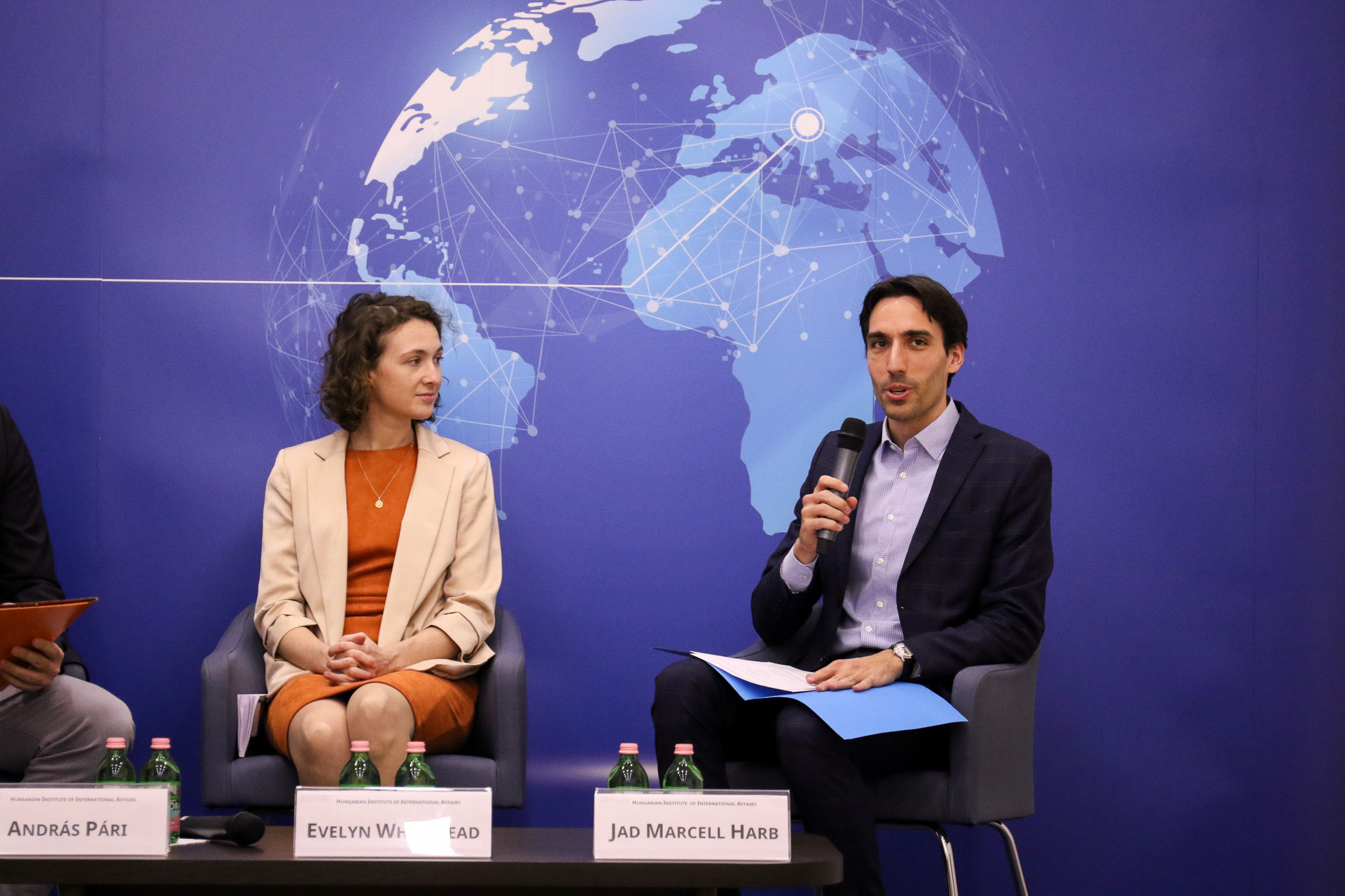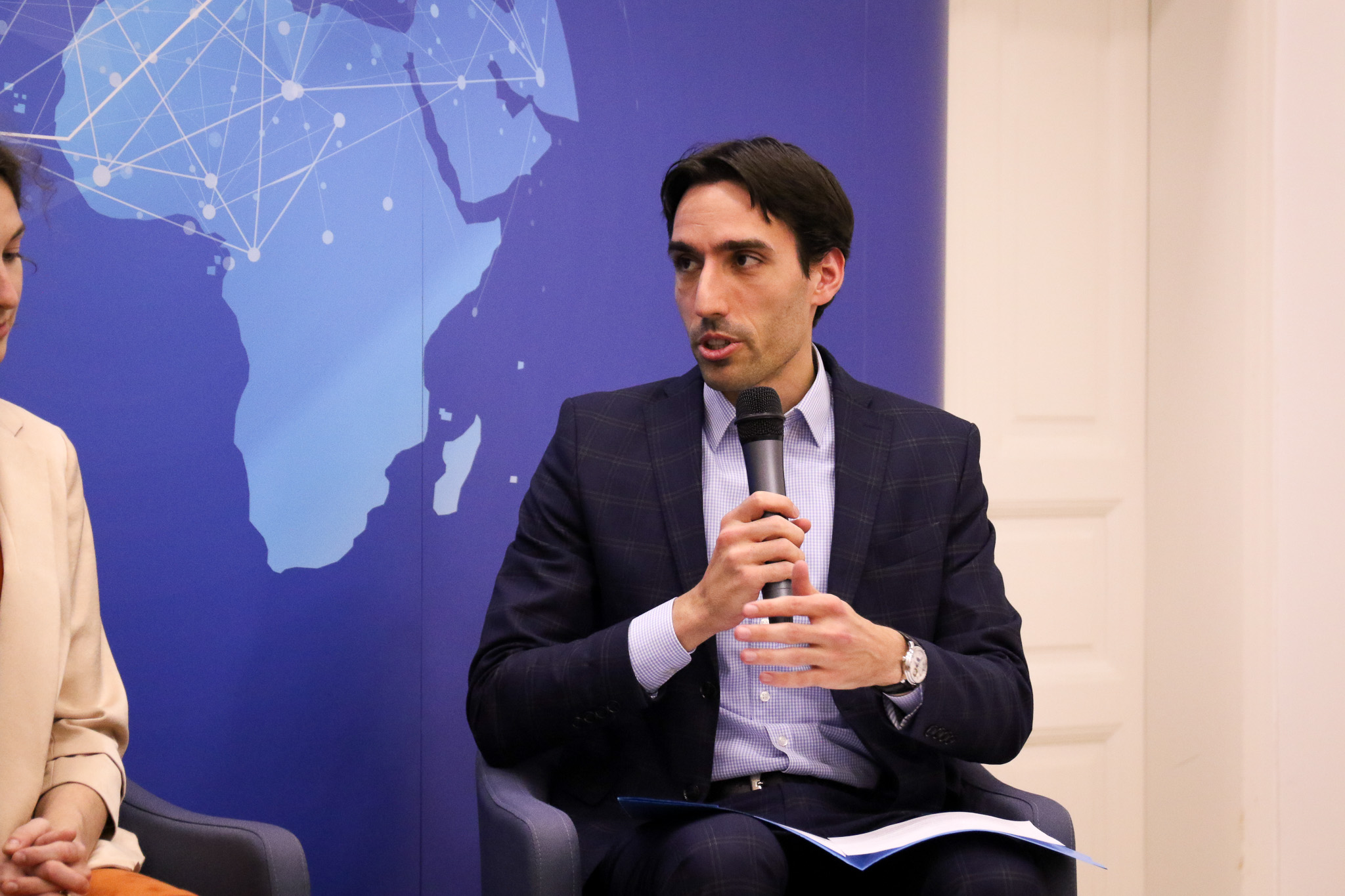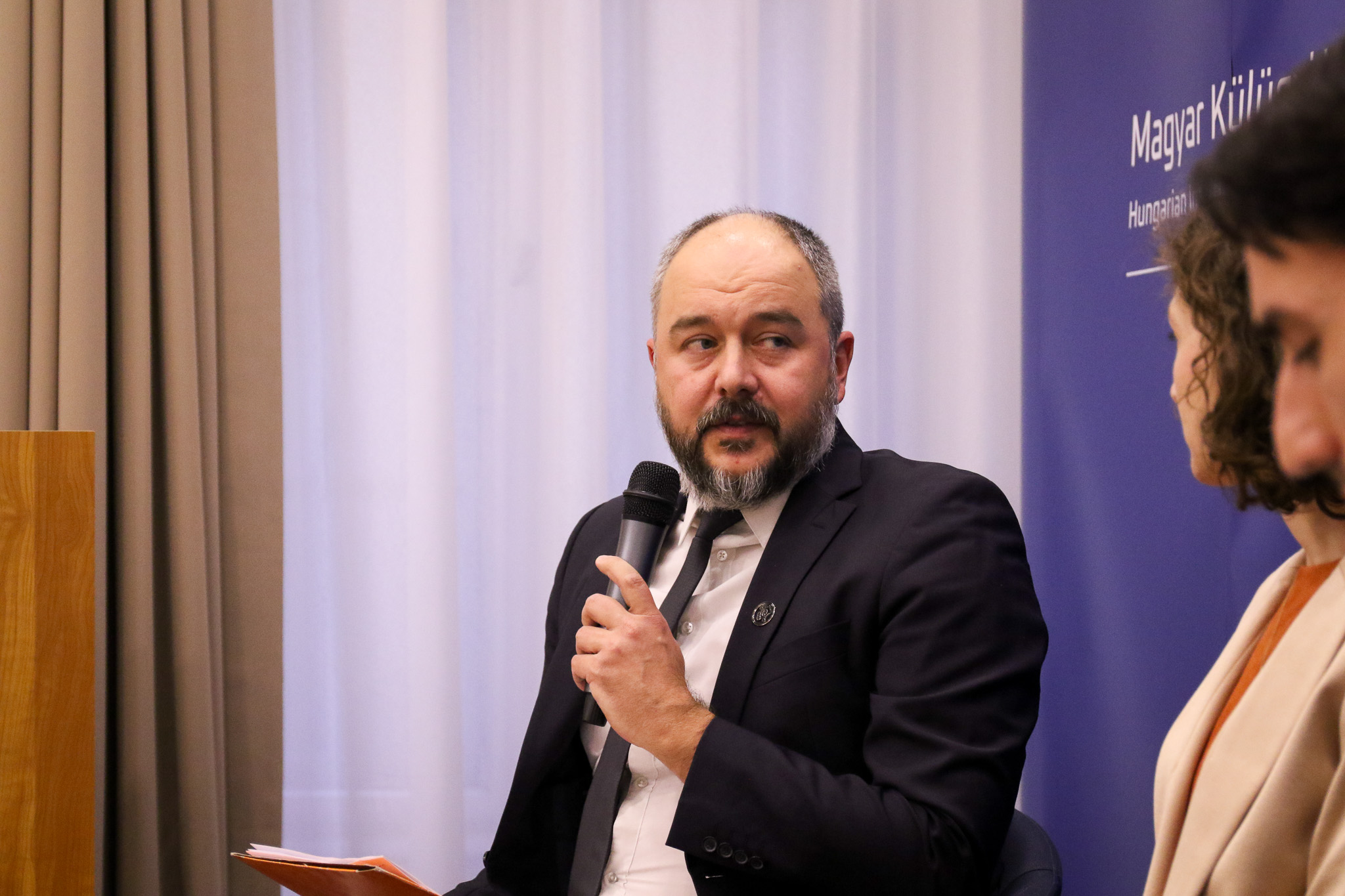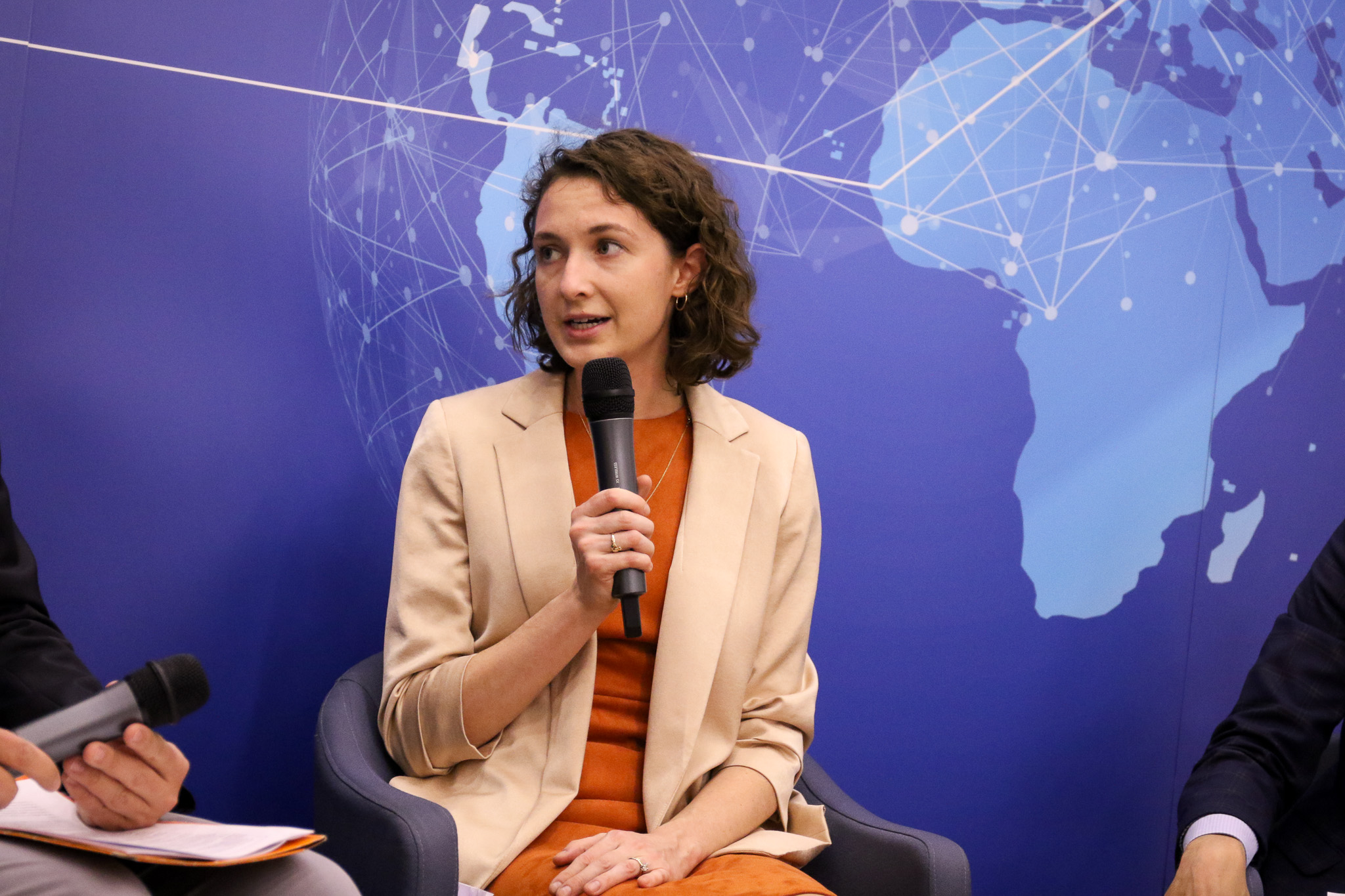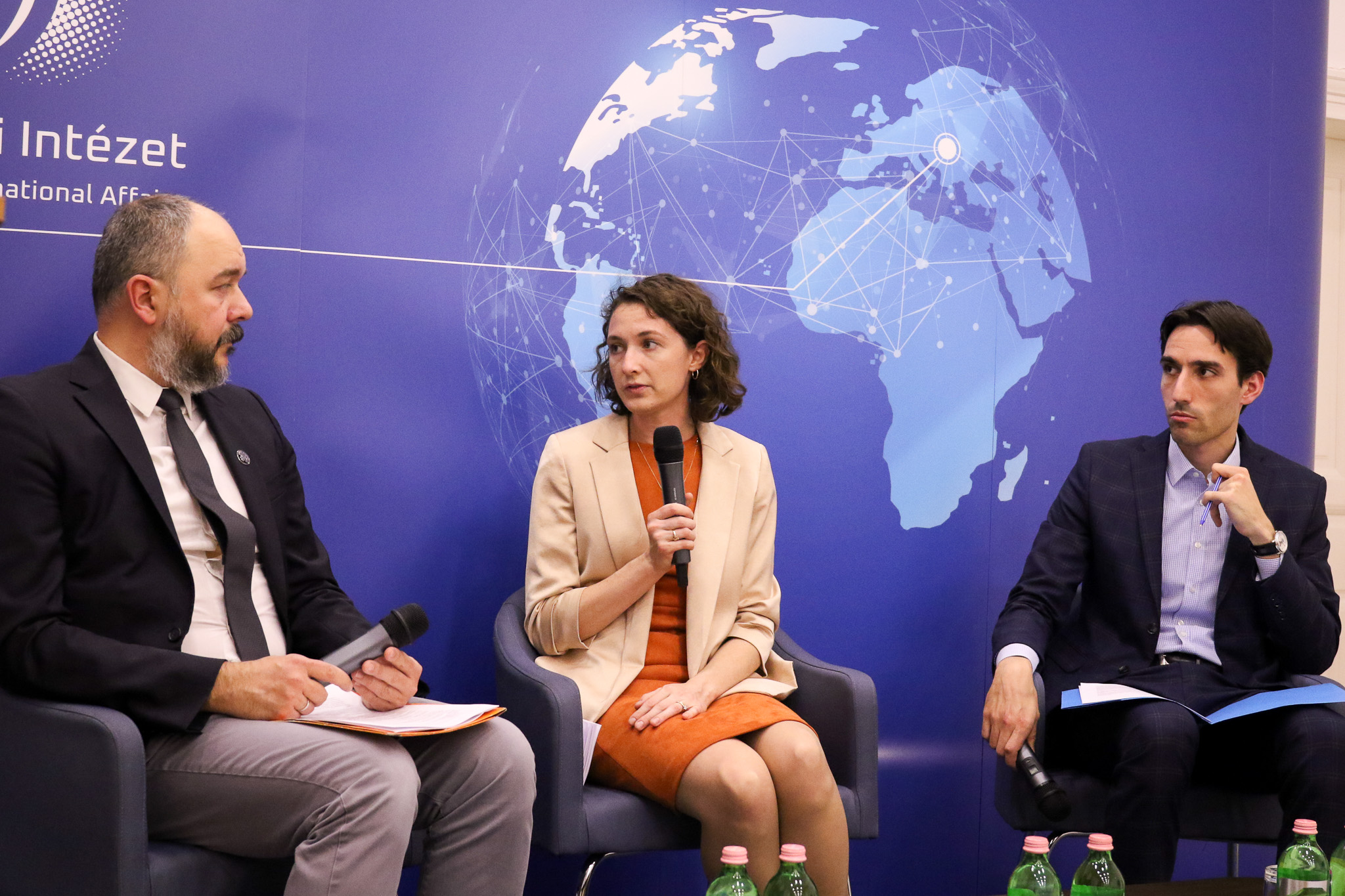On November 26, 2024, the Hungarian Institute of International Affairs (HIIA) held a roundtable discussion titled “The looming shadow – what could be done against Europe’s demographic crisis?”. The event featured András Pári, Vice President of the Mária Kopp Institute for Demography and Families, and Evelyn Whitehead, Budapest Fellow and Researcher at the Axioma Institute. The discussion was moderated by Jad Marcell Harb, Research Fellow of HIIA.
The speakers began by addressing Hungary’s demographic situation. András Pári emphasized that birth and death rates are key to understanding demographic trends. A fertility rate of 2.1 is required to maintain population levels, yet Europe’s average remains below this threshold, leading to population decline. He highlighted the “fertility gap,” the discrepancy between the desired number of children and actual fertility rates, and argued that strengthening intentions could help increase fertility. Discussing government policy, he pointed to home ownership incentives, support for childbearing, and the Family Protection Action Plan launched in 2014. According to Pári, a central element of these policies is achieving a balance between work and private life—an essential factor in reversing negative demographic trends.
Evelyn Whitehead offered a broader analysis of the general situation in the West. She noted that Hungary’s fertility rate rose from 1.2 in 2012 to 1.55 in 2024, but cautioned that decisions around having children are complex and influenced by a wide range of factors, including cultural, social, economic, religious, and environmental considerations. As positive examples, she cited Hungary’s family-friendly tax system, personal income tax exemptions for mothers of multiple children, and the three-year paid maternity leave, during which dismissal from employment is prohibited. She stressed that such measures provide significant support for those choosing to have children.
The speakers also touched upon the European dimensions of demographic challenges. According to Evelyn Whitehead, one fundamental issue is the “crisis of meaning,” which she attributed to declining religious influence, the growing acceptance of abortion, and a diminishing sense of selflessness necessary for raising children. András Pári underscored the importance of traditional values, pointing out the correlation between religiosity and the number of children. However, he also noted that even in wealthy, high-standard-of-living Northern European countries, fertility rates remain low—offering a cautionary example.
Audience questions included the relationship between migration and fertility, which both speakers addressed from different perspectives. András Pári suggested that while migration may temporarily alleviate labor shortages, it does not offer a long-term solution to demographic problems. Evelyn Whitehead added that migration in Europe can lead to the erosion of social cohesion and should not be treated as a long-term fix for low fertility.
To close the event, the speakers discussed long-term proposals for stabilizing demographic trends in Europe, placing particular emphasis on building stability and a family-friendly cultural environment.

